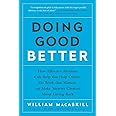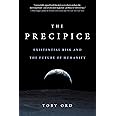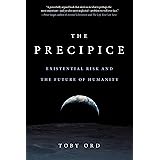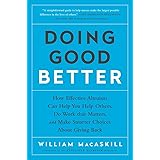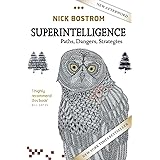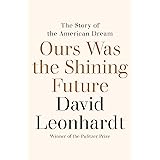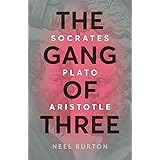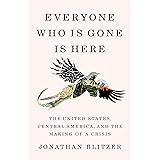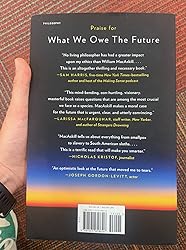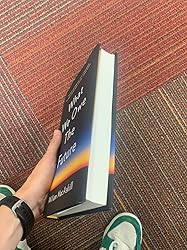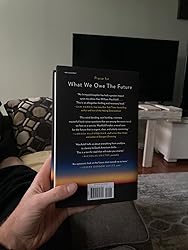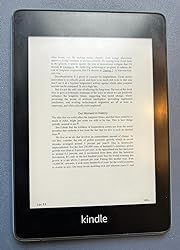
Enjoy fast, free delivery, exclusive deals, and award-winning movies & TV shows with Prime
Try Prime
and start saving today with fast, free delivery
Amazon Prime includes:
Fast, FREE Delivery is available to Prime members. To join, select "Try Amazon Prime and start saving today with Fast, FREE Delivery" below the Add to Cart button.
Amazon Prime members enjoy:- Cardmembers earn 5% Back at Amazon.com with a Prime Credit Card.
- Unlimited Free Two-Day Delivery
- Streaming of thousands of movies and TV shows with limited ads on Prime Video.
- A Kindle book to borrow for free each month - with no due dates
- Listen to over 2 million songs and hundreds of playlists
- Unlimited photo storage with anywhere access
Important: Your credit card will NOT be charged when you start your free trial or if you cancel during the trial period. If you're happy with Amazon Prime, do nothing. At the end of the free trial, your membership will automatically upgrade to a monthly membership.
Buy new:
-41% $18.99$18.99
Ships from: Amazon.com Sold by: Amazon.com
Save with Used - Good
$8.26$8.26
Ships from: Amazon Sold by: The BAP Goods





Download the free Kindle app and start reading Kindle books instantly on your smartphone, tablet, or computer - no Kindle device required.
Read instantly on your browser with Kindle for Web.
Using your mobile phone camera - scan the code below and download the Kindle app.

Image Unavailable
Color:
-
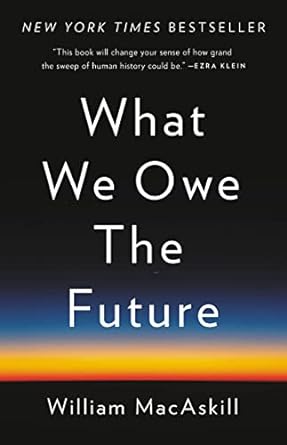
-
-
- To view this video download Flash Player
-

-
 VIDEO
VIDEO -

 Audible sample Sample
Audible sample Sample 


Follow the author
OK
What We Owe the Future Hardcover – August 16, 2022
Purchase options and add-ons
An Instant New York Times Bestseller
“This book will change your sense of how grand the sweep of human history could be, where you fit into it, and how much you could do to change it for the better. It's as simple, and as ambitious, as that.”
—Ezra Klein
An Oxford philosopher makes the case for “longtermism” — that positively influencing the long-term future is a key moral priority of our time.
The fate of the world is in our hands. Humanity’s written history spans only five thousand years. Our yet-unwritten future could last for millions more — or it could end tomorrow. Astonishing numbers of people could lead lives of great happiness or unimaginable suffering, or never live at all, depending on what we choose to do today.
In What We Owe The Future, philosopher William MacAskill argues for longtermism, that idea that positively influencing the distant future is a key moral priority of our time. From this perspective, it’s not enough to reverse climate change or avert the next pandemic. We must ensure that civilization would rebound if it collapsed; counter the end of moral progress; and prepare for a planet where the smartest beings are digital, not human.
If we make wise choices today, our grandchildren’s grandchildren will thrive, knowing we did everything we could to give them a world full of justice, hope and beauty.
- Print length352 pages
- LanguageEnglish
- PublisherBasic Books
- Publication dateAugust 16, 2022
- Dimensions6.45 x 1.45 x 9.65 inches
- ISBN-101541618629
- ISBN-13978-1541618626
The Amazon Book Review
Book recommendations, author interviews, editors' picks, and more. Read it now.
Frequently bought together
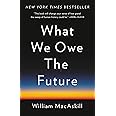
Similar items that may ship from close to you
From the Publisher
|
|
|
|
|---|---|---|
|
|
|
|
|
|
|
|
|---|---|---|
|
|
|
|
Editorial Reviews
Review
“An optimistic look at the future that moved me to tears.”
―Joseph Gordon-Levitt, actor
“What We Owe The Future makes the case for thinking seriously about the very long term. It gives a profoundly new perspective on human civilization and our place in it.”
―Lydia Cacho, journalist and author of The Demons of Eden
“What We Owe the Future is an intellectually thrilling exploration of moral philosophy and human history in the hands of a very skilled thinker and clear writer… Thought provoking.”―Charter
“Unapologetically optimistic and bracingly realistic, this is the most inspiring book on ‘ethical living’ I’ve ever read.”―The Guardian (UK)
“In focusing on the interests of future generations stretching into an indefinitely long future, MacAskill has thrust an important and neglected argument into the spotlight, while making it vivid and fun to read. He hopes this book will change the world, and it might.”―Financial Times (UK)
“Touchingly optimistic… With something to ponder on every page, a bracing exhortation to do right by the people of centuries to come.”
―Kirkus“MacAskill delivers a sweeping analysis of contemporary dangers that masterfully probes the intersections of technology, science, and politics, while offering fascinating glimpses into humanity’s possible futures. This urgent call to action will inspire and unnerve in equal measure.”―Publishers Weekly
“What We Owe the Future is an instructive, intelligent book. It has a lot to teach us about history and the future, about neglected risks and moral myopia.”―Boston Review
“No living philosopher has had a greater impact upon my ethics than Will MacAskill. In What We Owe The Future, MacAskillhas transformed my thinking once again, by patiently dismantling the lazy intuitions that rendered me morally blind to the interests of future generations. This is an altogether thrilling and necessary book.”
―Sam Harris, five-time New York Times bestselling author and host of the Making Sense podcast
"An exciting new book."―Tyler Cowen, Marginal Revolution
“An extraordinary book. I've never read something so deep and fundamental, and so accessible at the same time . . . The publication of this book is a monumental event. William MacAskill is one of the most important philosophers alive today, and this is his magnum opus.”―Rutger Bregman, Dutch historian and author of Utopia for Realists
“This is a book of great daring, clarity, insight and imagination. To be simultaneously so realistic and so optimistic, and always so damned readable … that is a miracle for which MacAskill should be greatly applauded.”
―Stephen Fry, actor
"There are moments when we can change outcomes easily, but if we don't bend those curves right then, we can lock in enormous long-term damage. This fascinating book makes us think relentlessly and usefully about such pivot points; few prods could be more important.”
―Bill McKibben, environmentalist and author of The End of Nature
"Many books promise a new ‘big idea’, but few deliver one as brilliant as MacAskill’s in What We Owe The Future. A fascinating, profound read."
―Julia Galef, author of The Scout Mindset
“Warning: This book may radically upgrade your ethics and expand your compassion. What We Owe The Future is an inspiring roadmap to how we can try to improve the lives of the billions and trillions sentient beings yet to come. It’s perhaps our greatest moral duty. So please do yourself – and your grandchildren's grandchildren's grandchildren – a favor and read this book.”
―AJ Jacobs, editor at large of Esquire Magazine
“This mind-bending, eon-hurtling, visionary, masterful book raises questions that are among the most crucial we face as a species. MacAskill makes a moral case for the future that is urgent, clear, and utterly convincing.”
―Larissa MacFarquhar, staff writer for The New Yorker and author of Strangers Drowning
“To assess what really matters it always helps to zoom out, and Will MacAskill is probably the world’s best zoom-outer. What We Owe The Future brilliantly shows us the biggest picture of all and persuasively reminds us of the vast impact we can all have.”
―Tim Urban, co-founder of Wait but Why“I expected William MacAskill to write a forceful and persuasive argument for caring more about future people and this book did not disappoint. But it’s so much more—What We Owe The Future is an engaged and deeply original exploration of questions ranging from the contingency of moral progress, to the perils of AI, to the very nature of a happy and fulfilled life. It’s an important, stimulating, and delightful book.”
―Paul BloomAbout the Author
Product details
- Publisher : Basic Books (August 16, 2022)
- Language : English
- Hardcover : 352 pages
- ISBN-10 : 1541618629
- ISBN-13 : 978-1541618626
- Item Weight : 1.23 pounds
- Dimensions : 6.45 x 1.45 x 9.65 inches
- Best Sellers Rank: #231,474 in Books (See Top 100 in Books)
- #63 in Philosophy of Good & Evil
- #634 in History & Theory of Politics
- #706 in Philosophy of Ethics & Morality
- Customer Reviews:
Videos
Videos for this product

1:35
Click to play video

What We Owe the Future
Hachette
About the author
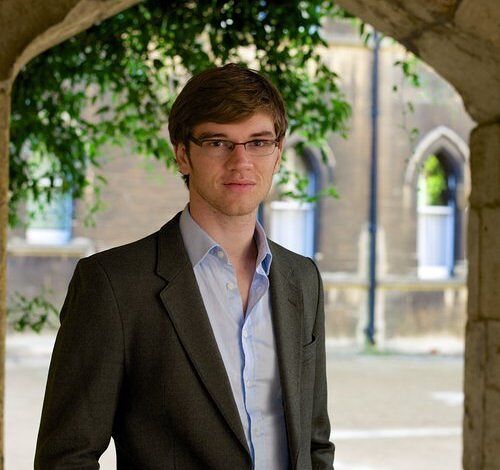
I'm Will MacAskill, Associate Professor in Philosophy and Research Fellow at the Global Priorities Institute, University of Oxford. My academic research focuses on the fundamentals of effective altruism - the use of evidence and reason to help others by as much as possible with our time and money, with a particular concentration on how to act given moral uncertainty.
I am the author of Doing Good Better - Effective Altruism and a Radical New Way to Make a Difference, and Moral Uncertainty. My latest book is What We Owe The Future.
I am the Director of the Forethought Foundation for Global Priorities Research, a co-founder and the President of the Centre for Effective Altruism (CEA) and I helped to create the effective altruism movement. Through Giving What We Can, CEA encourages people to commit to donate at least 10% of their income to the most effective charities. CEA also runs over 100 effective altruism local groups, hosts regular effective altruism conferences, and does research into high-impact policy and philanthropic opportunities.
I also co-founded 80,000 Hours, a YCombinator-backed non-profit that provides research and advice on how you can best make a difference through your career.
Customer reviews
Customer Reviews, including Product Star Ratings help customers to learn more about the product and decide whether it is the right product for them.
To calculate the overall star rating and percentage breakdown by star, we don’t use a simple average. Instead, our system considers things like how recent a review is and if the reviewer bought the item on Amazon. It also analyzed reviews to verify trustworthiness.
Learn more how customers reviews work on AmazonReviews with images
-
Top reviews
Top reviews from the United States
There was a problem filtering reviews right now. Please try again later.
Start with the axiom "future people count". This seems unobjectionable, but one then confronts questions like "is the world better for having more people leading good lives?" What are the trade-offs between present,near future, and far future costs and benefits? Is a larger population preferable to a smaller population? Chapter 8 discusses such "population ethics" questions via thought experiments. This is fascinating as an intellectual exercise, but it is perhaps not surprising that there are no very satisfactory answers.
Another theme starts with "values are contingent" -- for instance, that in an alternate history, large-scale legal slavery might have continued through the 20th Century. The author speculates that the current era of rapid technological and economic growth exhibits unusual "plasticity", in the sense that actions or their neglect today might lead to a "values lock-in" over the next century or two, so we should attempt to steer in the desired direction today. In particular this is applied to the development of AGIs, though the specific possible consequences described seem unconvincing to me.
Chapter 7 worries about possible future "technological stagnation"", and indeed the author writes later "the risk of technological stagnation alone suffices to make the net longterm effect of having children positive". This seems curious at first sight, but his point is that the world economy might end in an unsustainable state as regards climate change and resource depletion.
The final "What to do" Chapter 10 contains an interesting analysis, along the lines of the "effective altruism" movement that the author has been involved with. Changing personal consumption has little effect, except perhaps for becoming vegetarian. Donating to charities carefully chosen to maximize good, political activism and "spreading good ideas" are recommended. Less familiar is the discussion of career choices -- what will be the overall effect of your 80,000 lifetime hours of work?
On the technical side (my own background is mathematical probability), the use of mathematical expectation (expected significance, expected contingency, expected persistence) in the context of rare events with major consequences is problematical. Especially in the context of trillions of potential future humans, where arguments come perilously close to inane arguments like the Simulation Hypothesis. Similarly, the quoted subjective estimates of probabilities of various catastrophes are very unreliable.
Finally, my only major criticism is that the author does not address the following rather obvious "elephant in the room" thought experiment. Imagine an engineered pandemic, designed to and succeeding in killing 95% of humans unselectively without destroying infrastructure. This would be psychologically be harmful to the survivors, but by the logic of longtermism would surely be A Good Thing, in that the subsequent few generations would be free of most of our current worries about climate change, nuclear war, etc, and have time to work toward the ideal future envisaged in this book. But would anyone really say in public that it would be a good act?
Imagine, if you will, a lone archaeologist unearthing a fragmented mirror from the ruins of a forgotten civilization. Each shard reflects a fractured glimpse of a forgotten era. This, I posit, is the myopic lens through which we view our own existence. We are consumed by the fleeting squabbles and triumphs of the present, oblivious to the vast tapestry of time stretching before us. But William MacAskill, with the meticulous hand of a master cartographer, unveils the map of our collective future – a future pregnant with both peril and unimaginable possibility.
The book reads like a frantic telegram from a marooned explorer, desperately warning of the storms that threaten to extinguish humanity's flickering flame. Existential threats, like engineered plagues or rogue AI, lurk on the horizon, potential tsunamis poised to drown our nascent civilization. Yet, amidst the sobering warnings, glimmers of hope emerge. We possess the potential, MacAskill argues, to become not just survivors, but architects of a future shimmering with technological marvels and boundless human flourishing.
Imagine a world where disease is a relic of the past, where we traverse the cosmos like celestial nomads, and where the number of potential future beings stretches into the unfathomable – a staggering responsibility that demands a radical shift in perspective.
This isn't some utopian fantasy spun from wishful thinking. The book delves into the practicalities of longtermism, a philosophy that urges us to view decisions not just through the myopic lens of the present, but through the grand telescope of millennia. Effective Altruism, a movement meticulously dissected within these pages, offers a tangible toolkit for translating longtermism from theory to action. Imagine a global crusade against climate change, a united front against existential threats, or a concerted effort to ensure the benevolent development of artificial intelligence. These aren't mere dreams, but the seeds we sow today for the verdant garden of tomorrow.
"What We Owe the Future" is not simply a book; it's a clarion call, a thundering drumbeat that echoes through the halls of complacency. It compels us to abandon the flickering candle of the present and embrace the blazing sun of longtermism. It's a call for a paradigm shift, a global awakening to the vast canvas of time upon which humanity's story is being written. In its pages lies the potential to rewrite our narrative, to transform from a species teetering on the precipice of oblivion to one that becomes a steward of a vibrant future. This book may very well be the Rosetta Stone of our time, a key that unlocks the door to a future where humanity thrives not just for years, but for eons. The choice, as MacAskill eloquently reminds us, is ours. Will we remain prisoners of the present, or will we become architects of a future that shimmers with the brilliance of a thousand suns? The answer, dear reader, lies within the pages of this transformative work.
What makes this book exceptional is that the author is so clear-eyed and grounded about the calculations that we need to make to ensure a better future. We've all encountered a lot of ideas on how the world might be made better, but rarely are they examined so carefully. These conclusions about what it means for worlds or actions to be good are backed up by evidence and reason, and as such are more valuable than what you've likely heard elsewhere.
But then you get to his suggestions for you how personally can best make the future better. I bought the book in the first place because I was hoping to hear some ideas on what we can do to improve the future. This section is the weakest part of the book, and honestly the only part of the book that isn't great. A lot of the suggestions are much too vague to be useful, while examples given require literally world-class talent, access to exclusive universities, or international fame.
Still, if you ignore the final chapter it is an excellent book. Don't expect much actionable information, but do expect a lot of interesting information and convincing, well-reasoned explanations of what "Good" means.
Top reviews from other countries
The whole vision is based on a very reductionist / utilitarian worldview that puts too much (unwarrented) trust in the quantifiability of future outcomes. Life is inherently unpredictable, and even the best future AI will not be able to overcome the general knowledge problem that Hayek identified already in the 1940s.
Instead of futile attempts to calculate an inherantly uncertain future or the average wellbeing of humanity (!), true responsibility needs to be based on real behavioral change without the ‘instant’gratification of quantified rules and outcomes. Like another reviewer already stated, we owe the future more than an Arithmetic of Morality.
Nevertheless, the book is full of interesting ideas and food for thought.
Part 1 makes a strong and concinving case for longtermism. I fully agree that humanity behaves as an imprudent teenager while we are living in a pivotal moment in history
Part 2 talks about moral change and the significance, contingency and persistence of values. The case for a 'morally exploratory world' is well made, but looking at the current highly polarized political discourse I’d argue that we would benefit from a more tolerant attitude (instead of cancel culture) already today.
Part 3 discusses the 3 most important risks to society: besides full extinction (via an asteroid, a pandemic, nuclear war), or collapse (similar to the Roman empire) the author considers mere stagnation as an existential risk, too, given that current technologies are already sufficiently powerful to destroy the whole planet, but not yet powerful enough to help us safely avoiding such disaster. I'd argue though that behavioral change (which can be achieved - maybe even easier - in a stagnating society) is at least as important as technological progress.
Part 4 is the least convincing part of the book. The ‘population ethics’ championed here appears to be almost cartoon-like naïve. Also the next chapter - trying to quantify human happiness and progress, which is notoriously difficult - is not very persuasive. (While I appreciate the inclusion of non-human animals in the overall 'calculation', the bizarre conclusion that it might be better for wild animals to not exist at all clearly shows the limits of such quantitative approach.)
The last part is about taking action. Most recommendations here seem to be common sense though that do not really require the 'moral arithmetics' suggested in the earlier parts. Nevertheless, it is here - when discussing concrete (short- and medium-term) choices - where the quantitative approach can help making better decisions – e.g. when it comes to career choices. I wish MacAskill had used his arithmetics more for exposing some of the myths concerning greenwashing and - wishing in our consumption behavior.
Overall conclusion: it is good to have a long term perspective – not only for the planet, but also for a sense of purpose. That itself is an important message that is worth spreading. I'm less convinced by the optimization approaches, and I think it is in general healthy to stay away from bold visions that risk to turn into rigid and potentially dangerous ideologies.



